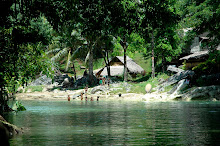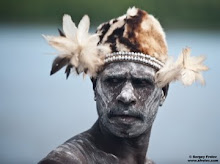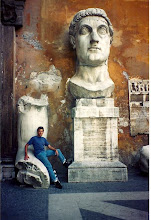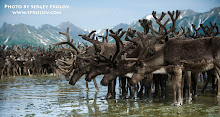
Upon the advice of locals, I strolled to Bei Hai park behind the Forbidden Palace this sweltering Sunday morning (around 30 deg C at 9am) and the experience lifted my spirits. As I joined the audience surrounding a choir accompanying half a dozen musicians on trumpet and saxophone, I found tears welling in my eyes as locals, old and young, thin and thin, and all as different from one another as Westerners are en masse, I felt this perverse longing to see Centennial Park in Sydney festooned with people like this, with many of them letting it all hang out in one way or another. Plenty of couples come along with their friends, or dance group, switch on their music, and start dancing in pairs for hours under the trees. As usual, I was the only Westerner for miles, and was tapping and clapping along to the point that I was invited to participate. I did, and their dances are relatively easy and straightforward, a kind of gentle rumba meets line dance which I'd be happy to demonstrate in person in due course.
Some of the singing sounds like cats screeching, but usually it is melodious and lovely to listen to, especially if it is accompanied by flute or some other zither-type instrument. As for the people's choir singing along to the "chamber orchestra" of trumpets, that was heavenly and so rousing, I felt profoundly moved. I didn't know what they were singing about. It could have been "Comrades, let us take up arms and conquer those stupid Westerners", but it was far more likely, when one considers how romantically inclined the Chinese are, that they were singing about the eternal path to happiness, the divinity of the gods, and all manner of heavenly things.
You only have to look at what they call their park pavilions to get a clue: place for cloudless thinking/ the palace of eternal rest/ place of stone and water/ etc etc... Taoism is all about man fusing with nature.

It's reflected in the paintings of fishermen, willows, cranes, and contrasts with the idolatry of dragons, phoenixes, lions and giant turtles (who represent longevity).
Why anyone in China would want a long life, I'm not entirely clear, because it doesn't strike me as an easy life. But when you are in Bei Hai, one witnesses only the beautiful, lyrical pleasures of these people who are bowed by centuries of brutal history, Mao's "re-education" and since then, the pursuit of the capitalist dollar.
Chinese are obsessed with Feng Shui, and this obsession in turn is focused on the accumulation of wealth - it is practically atypical for a Chinese person to not boast a jade "pichu" in their home. The "pichu" is the ninth and youngest son of the dragon and he is a strange creature that resembles a kind of lion/horse. His claim to fame is that he has no "exit hole" (to put it politely) which signifies that any wealth that enters his mouth never leaves, but simply accumulates. Now that, apparently, is good Feng Shui!
Some of the singing sounds like cats screeching, but usually it is melodious and lovely to listen to, especially if it is accompanied by flute or some other zither-type instrument. As for the people's choir singing along to the "chamber orchestra" of trumpets, that was heavenly and so rousing, I felt profoundly moved. I didn't know what they were singing about. It could have been "Comrades, let us take up arms and conquer those stupid Westerners", but it was far more likely, when one considers how romantically inclined the Chinese are, that they were singing about the eternal path to happiness, the divinity of the gods, and all manner of heavenly things.
You only have to look at what they call their park pavilions to get a clue: place for cloudless thinking/ the palace of eternal rest/ place of stone and water/ etc etc... Taoism is all about man fusing with nature.

It's reflected in the paintings of fishermen, willows, cranes, and contrasts with the idolatry of dragons, phoenixes, lions and giant turtles (who represent longevity).
Why anyone in China would want a long life, I'm not entirely clear, because it doesn't strike me as an easy life. But when you are in Bei Hai, one witnesses only the beautiful, lyrical pleasures of these people who are bowed by centuries of brutal history, Mao's "re-education" and since then, the pursuit of the capitalist dollar.
Chinese are obsessed with Feng Shui, and this obsession in turn is focused on the accumulation of wealth - it is practically atypical for a Chinese person to not boast a jade "pichu" in their home. The "pichu" is the ninth and youngest son of the dragon and he is a strange creature that resembles a kind of lion/horse. His claim to fame is that he has no "exit hole" (to put it politely) which signifies that any wealth that enters his mouth never leaves, but simply accumulates. Now that, apparently, is good Feng Shui!













No comments:
Post a Comment